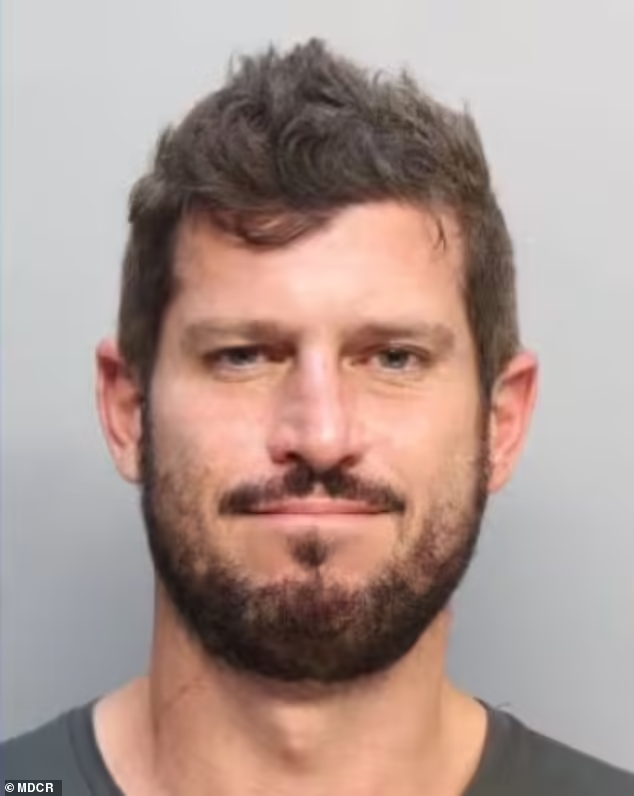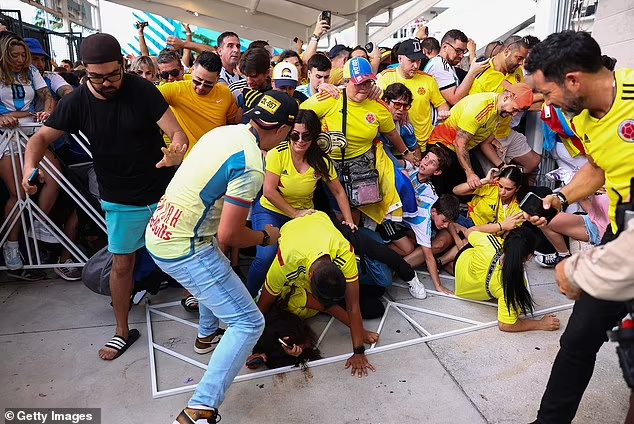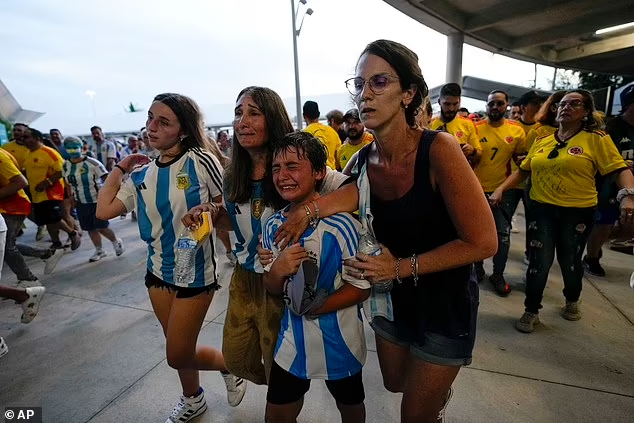The head of Colombian soccer, Ramon Jesurun, and his son were arrested at the Copa America final in Miami, amid scenes of chaos that saw thousands of ticketless fans storm the Hard Rock Stadium. The incident occurred hours after Colombia’s 1-0 loss to Argentina in a final marred by significant security breaches and delays.

According to a Miami-Dade Police Department report, the Jesuruns were arrested on three felony counts of battery on a specified official or employee. The pair allegedly became confrontational with security guards near a media tunnel around 12:20 am on Monday, with the situation escalating into a physical altercation.

The arrests were part of a larger security breakdown at the event. Miami-Dade Police reported a total of 27 arrests and 55 ejections from the match. Univision estimated the stadium was 7,000 people over capacity, with fans filling aisles and causing an 80-minute delay to the kick-off.

CONMEBOL, the South American soccer governing body, has shifted blame to Hard Rock Stadium officials for the security failures. In a statement, CONMEBOL claimed their recommendations for handling events of this magnitude were not taken into account by stadium authorities.

The chaotic scenes have raised concerns about Hard Rock Stadium’s readiness to host seven games at the 2026 World Cup. James Reyes, chief of public safety for Miami-Dade County, announced a comprehensive review of all safety and security protocols in preparation for the upcoming World Cup.

This incident is the latest in a series of controversies surrounding the Copa America, including complaints about high ticket prices, far-flung stadiums, and security issues at earlier matches. The tournament, meant to showcase inter-confederation camaraderie, has instead been plagued by organizational problems and security concerns.
As investigations continue, the arrests of the Colombian soccer chief and his son highlight the broader issues of event management and security in international soccer tournaments. The incident serves as a wake-up call for organizers of future major sporting events, particularly as Miami prepares to host World Cup matches in 2026.



